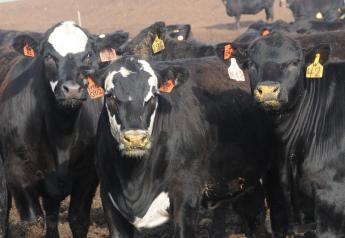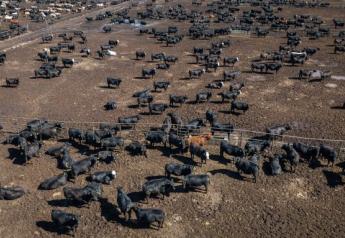Lawyer Responds to NCBA Allegations

Hi, I’m the National Cattlemen’s Beef Association’s current boogeyman. I defend choice, transparency, and the Constitution.
On July 24, NCBA’s CEO took time out of his schedule to author a piece for this site attacking the work I do to reform the Beef Checkoff on behalf of my public-interest organization, Public Justice, and its client, the Ranchers-Cattlemen Action Legal Fund, United Stockgrowers of America.
Why would the head of NCBA, who claims to represent “America’s one million cattle farmers,” attack a lawsuit we brought on behalf of producers, alongside former-GIPSA Administrator J. Dudley Butler and Montana co-counsel Bill Rossbach? In particular, why would an organization claiming to be an “advocate for the cattle industry’s policy positions” attack that suit after two federal judges agreed it only asks for what the Constitution requires?
The only answer I can come up with is that while Public Justice, R-CALF, and our allies are committed to holding a system that favors multinational beef packers over producers accountable, NCBA has other goals.
Public Justice and R-CALF’s suit against the Beef Checkoff program was based on a core First Amendment principle: The government cannot force you to fund another person’s speech. Free speech would not mean a lot if the government could make you pay for the other side’s megaphone drowning you out.
To date, the checkoff has survived because USDA told the Supreme Court that the checkoff only compels you to fund the government’s speech. The government’s authority to tax includes the authority to use tax money to promote government programs. In other words, the First Amendment does not prohibit you from being forced to pay for the government’s bullhorn, just that of a private citizen.
However, as everyone reading this knows, the Beef Checkoff does not just fund the government’s speech. Until our suit, half the money went to the government’s Beef Board, and the other half automatically went to private state beef councils that can be controlled by NCBA and its beef packer partners. Yet, the First Amendment does not apply only 50% of the time. It certainly does not allow every other dollar you’re taxed to be turned over to the government’s pet private organization without your consent.
This is the only issue R-CALF and Public Justice’s suit addressed (and won on): If the government wants to allow half the Beef Checkoff money to go to private state beef councils, it needs to get the payer’s consent. If you like what your state beef council is doing, keep giving it your checkoff money. If you don’t, you should have the power to ensure your money goes to a government controlled body that is responsible to its constituents. We’re not forcing money out of the checkoff program. We’re making sure that cattlemen and women only fund the message of private state beef councils if they agree with it.
Public Justice’s work with R-CALF on the checkoff exemplifies what we stand for. Public Justice believes that, particularly in the animal agriculture industry, mega-corporations possess undue influence enabling them to exploit workers, producers, consumers, and others. The key to reining in this system is to enforce existing rules, especially where they promote transparency and competition. The current Administration campaigned on remedying these problems, but so far it has solely done the bidding of its corporate cronies. This is why Public Justice is now working with R-CALF to ask the courts to restore Country-of-Origin Labeling on imported beef and pork (which we argue is mandated by U.S. law well predating NAFTA). It is also why we are representing chicken growers in antitrust suits against the integrators. We are demanding the Administration keep its word to America’s farmers by campaigning against practices that undermine an open and honest food system.
While Kendal Frazier might be right to call Public Justice an “activist” organization, we are activists on behalf of the farmers, fishers, ranchers, and workers that produce our food, the consumers who feed it to their families, and the communities within which it is made. We bring knowledge of how to craft high impact suits that protect these groups when the government fails to do so, but recognize we do not speak for them. That is why we team with organizations such as R-CALF to ensure we are responding to the needs and desires on the ground.
Any day the CEO of a front for multinational beef companies attacks me for standing with producers is a day I am confident I am doing my job.







